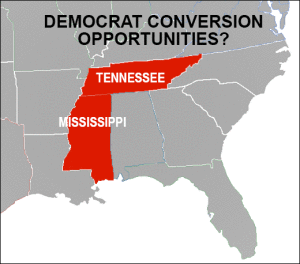By Jim Ellis
July 27, 2020 — We’ve seen a plethora of presidential state polls released in the past couple of days, and the results seem to swing wildly among the various pollsters. While most studies have shown former vice president Joe Biden at present winning most of the key states, his margins don’t seem particularly secure even while his national numbers appear stronger.
Let’s explore the polling divergence, and remember that sample selection, weighting, size of the respondent universe, and length of time to complete the survey process are all important variables in determining a ballot test result. Also, the huge number of people refusing to answer their phones or not participating in political surveys means that pollsters must further rely on weighting and mathematical supposition to compensate for the lack of live responses.
With that short background, let’s look at some of the key states producing the widest swings:
FLORIDA
• Quinnipiac University – July 16-20 (924 registered voters; live interview)
| Biden | 51 |
| Trump | 38 |
| Biden | plus 13 |
• St. Pete Polls – July 13-14 (3,018 likely voters via automated system)
| Biden | 50 |
| Trump | 44 |
| Biden | plus 6 |
Though Biden is up in both polls, the margin difference is stark. The Q-Poll, brandishing such a wide spread in what is typically a close political state raises reliability questions.
GEORGIA
• Garin Hart Yang Research – July 9-15 (800 likely voters)
| Biden | 47 |
| Trump | 43 |
| Biden | plus 4 |
• Spry Strategies – July 11-16 (701 likely voters; IVR)
| Trump | 49 |
| Biden | 46 |
| Trump | plus 3 |
Here we see two different leaders within two different polling samples within the same virtual period. Republicans tend to under-poll in the southern states, which could certainly be present in at least the GHY poll.


